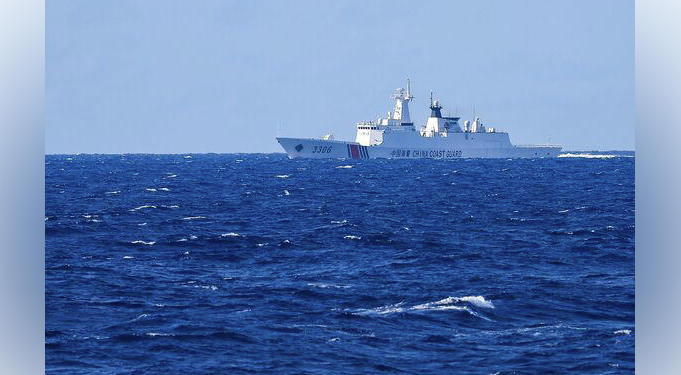The United States Navy has confirmed that it deployed a guided-missile destroyer to conduct a freedom of navigation operation (FONOP) near the Spratly Islands in the South China Sea, directly challenging territorial restrictions imposed by China, Taiwan, and Vietnam.
According to the US Seventh Fleet, the USS Dewey carried out the operation, asserting “navigational rights and freedoms” under international maritime law. The mission took place amid rising tensions in the Indo-Pacific, particularly following reports of Chinese bombers operating near the area in recent weeks.
“This freedom of navigation operation upheld the rights, freedoms, and lawful uses of the sea recognized by international law,” a Navy spokesperson said.
Disputed Waters, Rising Tensions
The Spratly Islands are at the heart of multiple overlapping claims involving China, the Philippines, Vietnam, Taiwan, Malaysia, and Brunei. Beijing has long asserted expansive claims over the South China Sea and has constructed military outposts on several artificial islands in the region.
Images released by the US Navy also suggest the presence of the USS Benfold, another Arleigh Burke-class destroyer, operating in the region. One image appeared to show bridge-to-bridge communication involving Chinese naval forces, indicating a potential close encounter at sea.
Meanwhile, the USS Nimitz, a nuclear-powered aircraft carrier, has been stationed in the South China Sea since early May as part of what is likely its final deployment before retirement in 2026.
China Responds
In response, the Chinese Foreign Ministry denied that freedom of navigation in the South China Sea is under threat.
“There has never been any problem with regard to freedom of navigation and overflight there,” said a ministry spokesperson, adding that China remains committed to peaceful dialogue but will continue to “safeguard its territorial sovereignty.”
Despite these statements, the US maintains that certain coastal states—notably China—have sought to unlawfully restrict navigational rights through excessive maritime claims, including demands for prior notification or authorization for innocent passage of foreign military vessels.
The United Nations Convention on the Law of the Sea (UNCLOS) guarantees the right of innocent passage through territorial waters for all states. The US operation near the Spratlys reaffirms Washington’s stance that international waters must remain open and free, especially in strategic corridors like the South China Sea, a key artery for global trade and military logistics.
In a related development, the Philippine Navy commissioned new warships as it marked its 127th anniversary, underscoring its growing defense posture amid Beijing’s maritime assertiveness. Civilian protests have also erupted in the West Philippine Sea, reflecting growing local and regional resistance to China’s aggressive presence.
The move by Washington is the latest signal that the US is prepared to counter Beijing’s maritime claims, reinforcing alliances and regional security in one of the world’s most volatile flashpoints.








